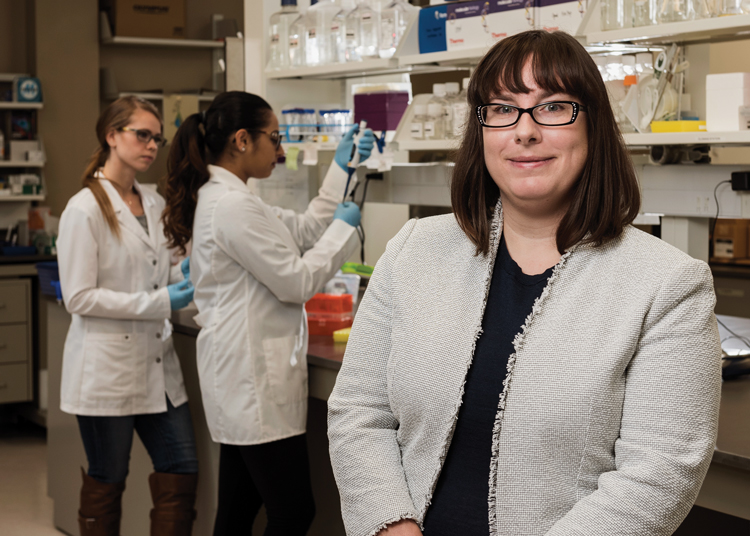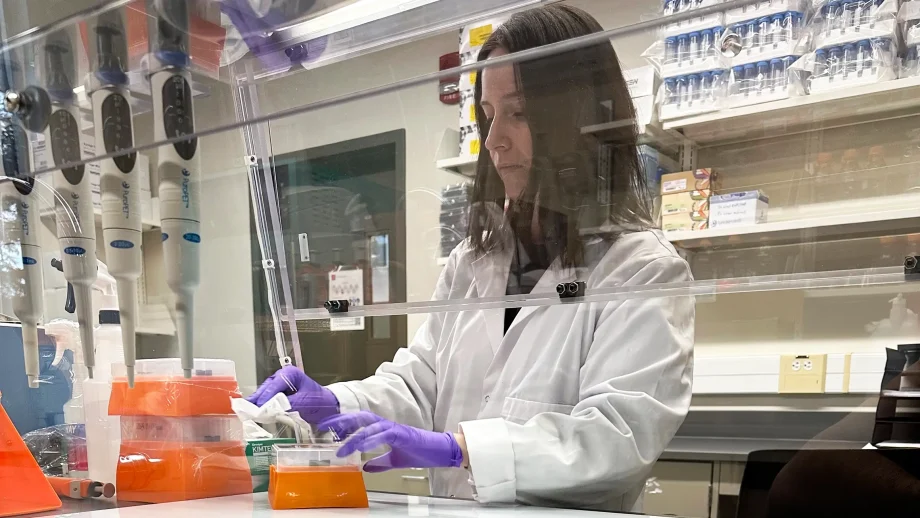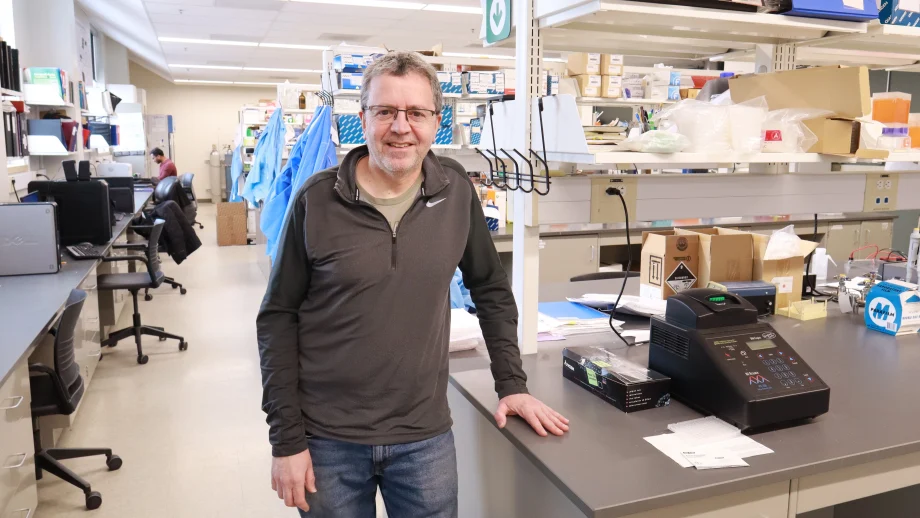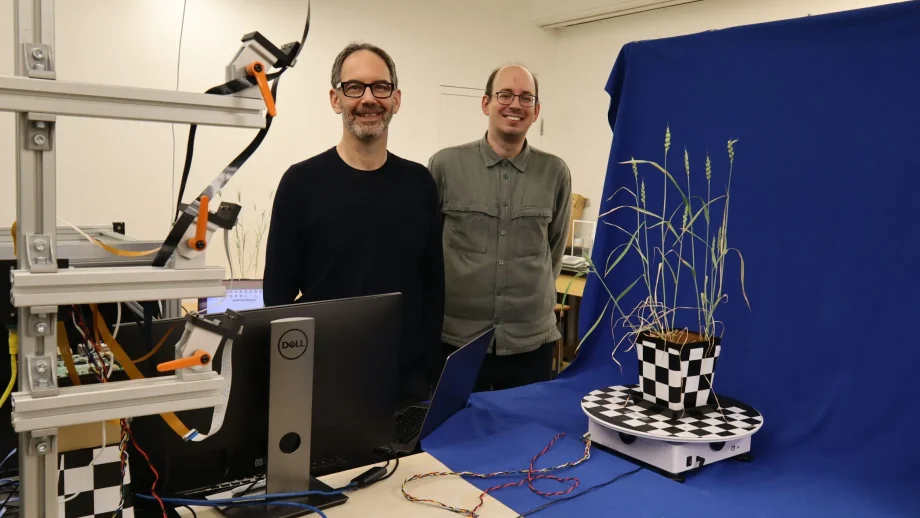Existing medication used in HIV treatment could improve quality of life for patients
Dr. Renée Douville (Associate Professor, Biology) has been awarded a three-year, US$300,000 grant from The ALS Association (U.S.) to study the role that viruses in the human genome play in Amyotrophic Lateral Sclerosis (ALS). The research will examine the use of market-available medication in treating symptoms of the neurodegenerative disease, which currently affects between 2,500 and 3,000 adult Canadians.
Dr. Alberto Civetta (Professor, Biology, UWinnipeg), Dr. Kerri Schellenberg (University of Saskatchewan) and Dr. Veronique Belzil (Mayo Clinic Florida) are co-investigators on the grant.
“It is with a profound sense of duty that our lab team is committed to the underlying research necessary to bring forward new treatment options for patients with ALS,” said Douville.
Douville’s lab has already discovered a link between the disease and endogenous retroviruses, a typically dormant group of viruses that make up eight per cent of human DNA. Once considered “junk DNA,” the viruses are now known to activate in patients with ALS, as well as neuropsychiatric diseases like schizophrenia.
The grant will allow Douville to further understand how the endogenous retrovirus-K (ERVK) contributes to ALS neuropathy and the exact damage it causes. The team will also be testing FDA-approved integrase inhibitors, which limit DNA damage caused by retroviruses, and are currently used as an effective treatment option for patients with HIV. Douville’s data suggests the use of them in ALS patients could reduce toxic forms of a protein within cells expressing ERVK — potentially slowing down tissue damage and improving their overall health.
Funding for the grant was made possible by proceeds generated from the Ice Bucket Challenge — a global phenomenon that helped raise awareness for ALS research in 2014. Since then, The ALS Association has committed over US$84 million towards research projects.
“The thought that so many people within the ALS community have gone to great (and chilly!) lengths to support our work motivates us every day,” said Douville.
ALS Facts from ALS Society of Canada
- Approximately 2,500-3,000 Canadians over the age of 18 currently live with ALS.
- Approximately 2/100,000 Canadians are diagnosed with ALS every year.
- ALS is the most common cause of neurological death in Canada (mortality rate of approximately 2/100,000 per year).
- 80 per cent of people with ALS die within two to five years of diagnosis, and 10 per cent may live 10 ten years or longer.





